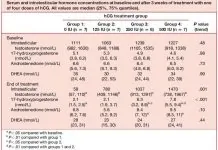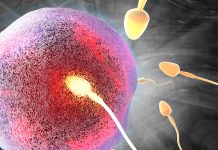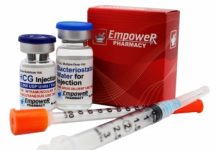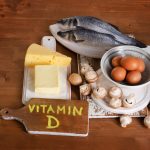Almost 15% of all couples trying to conceive are affected by infertility, and in almost half of these cases male infertility is the sole or a contributing factor.1 Male infertility can have several causes. The most common is idiopathic oligoasthenoteratozoospermia (OAT),2 which is a condition in which sperm concentration, the proportion of morphologically normal sperm and the proportion of motile sperm are all lower than the World Health Organization reference values.3 Despite extensive research, a successful treatment for OAT has not yet been developed. Many recent studies have focused on oxidative stress and its possible role in the pathogenesis of male infertility; in physiological conditions, small amounts of reactive oxygen species (ROS) are produced by spermatozoa, and various scavengers act to reduce the concentration of these ROS in the seminal plasma. ROS are needed for capacitation, the acrosome reaction and ultimately fertilisation.4However, excessive production and/or reduced clearance lead to oxidative stress within sperm, resulting in DNA damage,5, 6 reduced motility7 and defective membrane integrity.8, 9Antioxidants may help maintain the balance between ROS production and clearance and could thus improve sperm quality. Observational studies have also found a lower frequency of sperm aneuploidy in men with a higher dietary intake of antioxidants than in those with a lower intake.10, 11
Increased ROS production by leukocytes seems to be a direct consequence of inflammatory processes or of vascular diseases leading to hypoxia or ischaemia, with varicocele playing a significant role.12, 13, 14, 15 It should also be stressed that immature teratozoospermic forms produce relatively more ROS than normal, mature sperm16 and that semen from fertile men has a more effective antioxidant capacity than that from infertile men.11, 13
Identifying and treating the cause of increased ROS production should be the first step for all infertile male patients; antioxidant supplementation could be useful in increasing the scavenging capacity of seminal plasma, but would not treat the underlying condition that causes the reduced fertility.
The presence of too many variables in most studies that focus on antioxidants and male infertility has also led to controversy,17, 18, 19 not only because the authors have used different antioxidants, different combinations and different doses in patients with differing characteristics, but also because of the different end points evaluated in their studies. An improvement in sperm quality does not always translate into clinical benefit. Even if a few selected studies have shown that antioxidants have a positive effect on sperm characteristics, there still seems to be no definitive evidence that this therapy leads to higher pregnancy rates.20, 21, 22, 23, 24, 25, 26, 27
Source: https://www.ncbi.nlm.nih.gov/pmc/articles/PMC3739574














